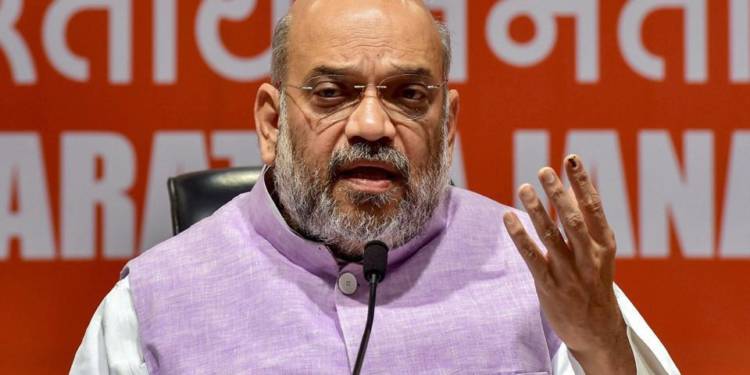A few weeks after Union government abrogated Article 370, Rahul Gandhi went to Srinagar airport along with few other Congress leaders. As the situation in the valley was not ‘normal’, he was not allowed to go beyond the airport. “We wanted to get a sense of what people are going through, but we weren’t allowed beyond the airport. Press people with us were mishandled, beaten. It’s clear that the situation in J&K isn’t normal,” Rahul Gandhi said after the visit.
After that visit, which was aimed to get the limelight in media and sympathy of Kashmiri people, neither Rahul Gandhi nor any other opposition leader made any attempt to visit the valley. As the Valley came back to normal, with Internet and Telephone services restored, even common people without any specific security are visiting Kashmir, but not the opposition leaders.
In the winter season, thousands of tourists visited Kashmir, although total number of visitors was less than previous years. But, the fact of the matter is, common tourists are visiting Kashmir without any fear. But the opposition leaders continue to complain about the lockdown, instead of getting a first-hand account in post-Art. 370 situation in the valley.
In a session at Times Now Summit, Union home minister Amit Shah said that opposition leader can go to Kashmir now, and they never tried after they were stopped once. “They (Rahul Gandhi and Yechury) never went to Kashmir after they were stopped once. They can go now: anyone can go there now, we will give permission to everyone,” Amit Shah said.
Important. And the Home Minister is right. The opposition made only one attempt to go to Kashmir and never tried again. That is how hopeless the opposition is https://t.co/o6vYgSMniT
— Nidhi Razdan (@Nidhi) February 13, 2020
Nidhi Razdan, journalist at NDTV, who is a Kashmiri Pandit, tweeted, “Important. And the Home Minister is right. The opposition made only one attempt to go to Kashmir and never tried again. That is how hopeless the opposition is.”
Rahul Gandhi’s visit to Kashmir came around twenty days after the Parliament moved ahead and abrogated several discriminatory provisions of Article 370, however, this visit was not only halfhearted but also surely delayed and reluctant. What unfolded during this ‘tour’ which many have alleged to be purely a political spectacle was nothing more than a well-planned trip to the Srinagar Airport along with some onboard interactions with the media and the passengers. While the intensity by which Congress Party had opposed the legislative developments in Jammu and Kashmir, so much so that the Parliamentary leader of the party had even questioned India’s sovereignty over the region, Rahul Gandhi’s conduct not only lacked the intensity which the party had projected in the parliament and outside around Delhi but also reeked of ulterior motives.
Home Minister Amit Shah at the centre has been working closely with the police and army to bring normalcy to the state despite the futile attempts of foreign media and left-liberals who have been trying to paint images of a violence-hit Kashmir.
For decades, Kashmir has had to deal with double-dealers like Mehbooba Mufti and Farooq and Omar Abdullah, who bargained on behalf of J&K with the centre, made thrift profits for themselves and left Kashmiris stranded in the middle. For decades these dynasties have ensured the prevalence of an environment in J&K that is conducive for building personal riches, acting as the only bridges between the Kashmir valley and New Delhi.
However, the August 5th decision has left these political families in tatters and their influence over the region has been reduced next to nil. This move aims to build trust and eliminate the sense of alienation amongst the people of Kashmir for good. The voices in Kashmir that were until now not heard or subverted by the cacophony of separatists and terrorists, shall find a public platform for debate, now that the centre aims to connect with and directly empower the local, grassroots level leaders in J&K.























